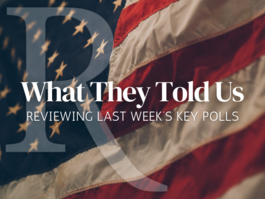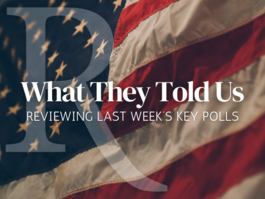From New Jersey to Beijing and Back Again
A Commentary By Lawrence Kudlow
Here are some thoughts on a few recent and important money-politics headlines.
Garden State Millionaire Tax Defeated. Some late-breaking news was delivered in New Jersey Monday afternoon on the tax front. Democrats there failed in their efforts to override Gov. Chris Christie’s veto of the millionaire tax. Make no mistake: This is a big win for GOP maverick Chris Christie, and a big win for limited, tea-party-inspired government. This story has national election implications.
The Democrats needed two-thirds of the assembly, but without Republicans they couldn’t do it. This ill-conceived tax on income over a million bucks would have hit roughly 16,000 households at an anti-growth 10.75 percent rate.
I call it the “Move to Florida” tax. It would have destroyed New Jersey job creation. One study after another demonstrates what a bad idea it is for states to go down this road. It’s a fiscal dead end. After all, capital goes where it’s treated best. Apparently, this lesson was lost on the New Jersey Democrats, who fortunately lost their tax-hike bid.
And get this: the millionaire tax would have represented the 116th tax increase in the last eight years in the Garden State. Unbelievable.
That begs an obvious question: If the first 115 tax increases failed to balance the state budget, why on earth did they think the 116th would? New Jersey is a mess. My hat goes off to Chris Christie.
The BP Mess. Two important headlines on the Gulf oil catastrophe:
First, the Senate may finally be moving to overturn the Jones Act. That act, of course, is preventing foreign flag ships from helping in the Gulf clean-up effort. What in the world has taken them so long?
Second, in what could become a major story, a federal judge in Louisiana might conceivably overturn Obama’s job-killing drilling moratorium as early as Tuesday.
So at least there’s a chance of some better news out there. Lord knows we need it.
Yuan Appreciation. So China announced a more flexible exchange rate for its yuan. I call it an upward managed, crawling peg against the dollar. It’s ultimately a slow delinking, one that will take years, but it could liberate China from Fed head Ben Bernanke.
Near-term, it’s much ado about very little. There will be no big yuan shift. But at least the China move might stave off a Smoot-Hawley protectionist trade war. That’s the last thing we need right now. So it’s likely good news on the trade front.
And while China’s move represents a tax cut for Chinese consumers and workers (better purchasing power) it’s ultimately a tax hike on American consumers, since imported goods will cost more at the cash register.
A message to all those people blaming China for our slow, jobless recovery: Shame on you. Stick to your own knitting.
Washington is the problem, folks. Our government’s massive overspending, over-taxing, and over-regulating has caused corporations and banks to hoard $2.5 trillion in cash and credit. If all that money was unleashed, it could ignite the economy. But the problem is everyone is absolutely scared to death of Washington’s anti-business, anti-profit, anti-investment policies.
The Market: Sell into Rallies. The yuan-based stock market rally completely fizzled on Monday as triple-digit gains were wiped out by the end of trading. The biggest market mover was gold, which dropped about $25, while the greenback held firm.
Let me raise a few key questions: Did the yuan crush gold? Is the strong dollar deflating stocks and the recovery? Is gold overvalued right now?
Stocks are still off about 8 percent from their late-April peak. From my perch, I think it’s going to be difficult to return to that peak, or to surpass it, for some time. Not impossible, but difficult.
I also happen to agree, at least partly, with Nobel Prize?winning economist Robert Mundell’s recent take on the dollar. He believes that the 20 percent overshoot of King Dollar, relative to the euro, possesses some deflationary consequences that could slow the recovery rate. And the euro decline will speed-up the German and (northern) Euroland recovery rate.
Here’s a little economic reality check: Despite Monday’s gains, copper is still off around 20 percent. Jobless claims are moving up, not down. U.S. retail sales and housing starts have both recently surprised to the downside.
These are not good signs.
While manufacturing production remains the single strongest part of the economy, I’m wondering whether it also might slow with the decline of industrial commodity prices, due to an overly strong dollar. Now, you know me. I’m all for a strong, stable, and reliable dollar. But huge swings in the greenback always produce lagged consequences in our economy. This worries me.
Let me state for the record that I’m not a double-dipper. I’m just in the slowdown camp. And tepid growth could very well slow down the stream of corporate profits.
In other words, a slowing economy, a big 2011 Washington tax-hike wall, an overly strong dollar, ongoing debt concerns in Europe, and bad economic news from the BP catastrophe in the Gulf all leave me feeling realistically cautious on the stock market. For now.
Let me conclude with the following thought. I’ve mentioned this a bunch in recent weeks, and I’m sticking to my guns here: Why not consider taking some profits off the table, before the tax man arrives next year? Taxes on capital gains and dividends are heading higher folks. Why not book some gains before the IRS grabs them?
I’m not suggesting that investors sell everything they own. But investors may want to seriously consider lightening their portfolios a bit. Take some profits on these mini-market rallies.
No, I am not going all doom and gloom. I’m just saying this is a good time to be cautious. That’s all.
See More Commentary by Lawrence Kudlow
See Other Political Commentary
Views expressed in this column are those of the author, not those of Rasmussen Reports.
Rasmussen Reports is a media company specializing in the collection, publication and distribution of public opinion information.
We conduct public opinion polls on a variety of topics to inform our audience on events in the news and other topics of interest. To ensure editorial control and independence, we pay for the polls ourselves and generate revenue through the sale of subscriptions, sponsorships, and advertising. Nightly polling on politics, business and lifestyle topics provides the content to update the Rasmussen Reports web site many times each day. If it's in the news, it's in our polls. Additionally, the data drives a daily update newsletter and various media outlets across the country.
Some information, including the Rasmussen Reports daily Presidential Tracking Poll and commentaries are available for free to the general public. Subscriptions are available for $4.95 a month or 34.95 a year that provide subscribers with exclusive access to more than 20 stories per week on upcoming elections, consumer confidence, and issues that affect us all. For those who are really into the numbers, Platinum Members can review demographic crosstabs and a full history of our data.
To learn more about our methodology, click here.


